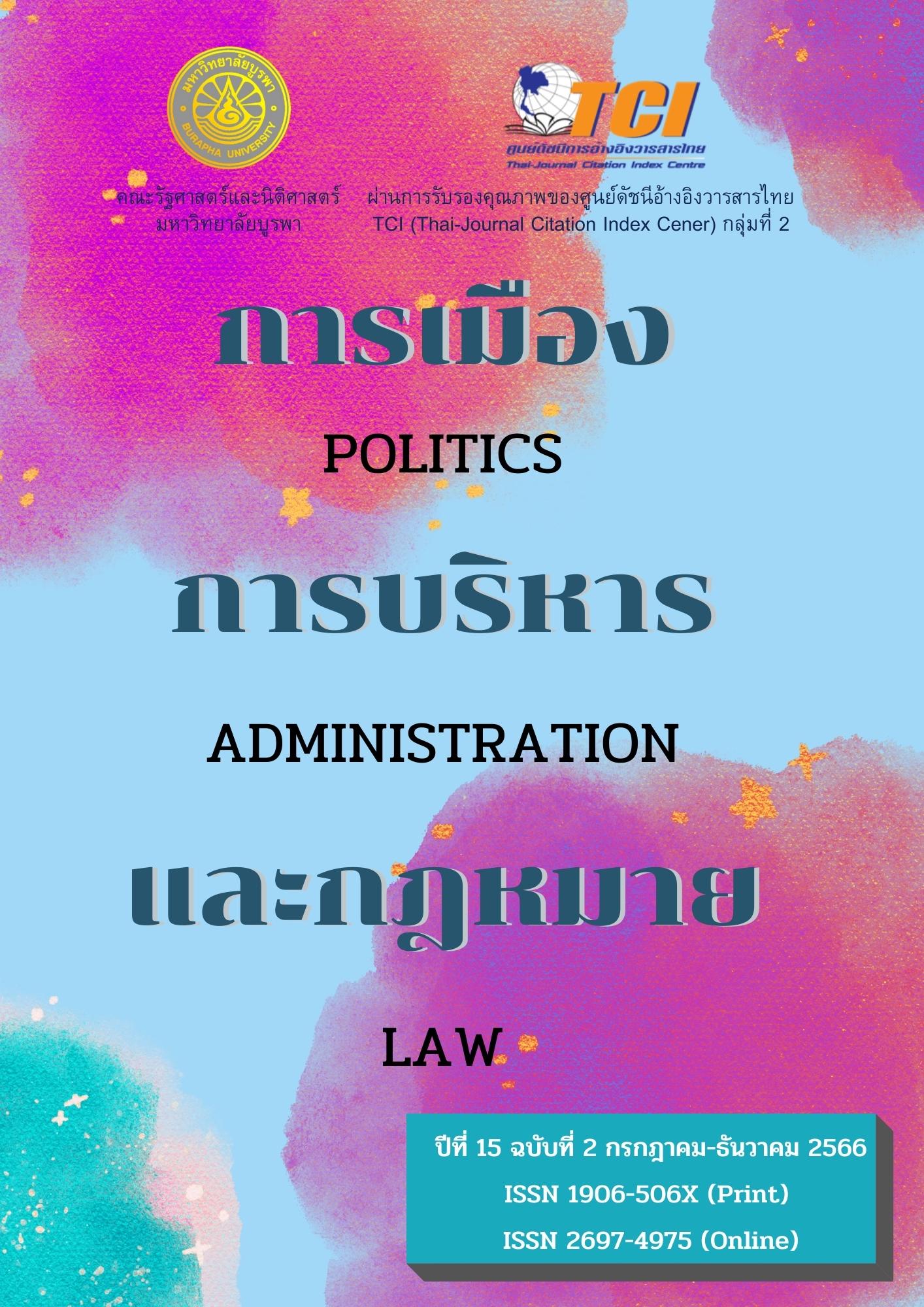Sustainable Business Operation by Reducing the Effect toward its Community and Environment under the Concept of Green Supply Chain Management: Case of Business Related to the Food Industry
Keywords:
การดำเนินธุรกิจ, ความยั่งยืน, สิ่งแวดล้อม, ห่วงโซ่อุปทานสีเขียวAbstract
During the past, business in Thailand has been passed down for several years since agricultural and industrial era which consumed all natural resources and environment regardless of the consequences which caused various problems, for example changing climate, water and air pollution etc. All of these are arising out of human behavior in consuming the limited natural resources without caution. As more problems occurred, our community and consumers have changed their perceptions by focusing on environmental friendly consumption which causes the entrepreneurs to change their business operation to be more environmental friendly until the concept of Green Supply Chain has been emerged like Ampol Foods Processing Limited. And S&P Syndicate Public Company Limited Vision of this company emphasizes on the innovation leader of Thai Food to Global market with society and environmental responsibility. This concept has been adapted into sustainable business operation by reducing the effect toward its community and environment under the concept of APF Green Supply Chain.
References
กรมส่งเสริมอุตสาหกรรม. (2557). อุตสาหกรรมไฟฟ้าและอิเล็คทรอนิกส์. วันที่ค้นข้อมูล 12 มีนาคม 2565, เข้าถึงได้จาก http://www.strategy.dip.go.th/
กระทรวงอุตสาหกรรม. (2557). คู่มือแนวทางปฏิบัติสำหรับผู้ประกอบการอุตสาหกรรมเพื่อพัฒนาสู่อุตสาหกรรมสีเขียว. วันที่ค้นข้อมูล 12 มีนาคม 2565, เข้าถึงได้จาก http://www.greenindustry.go.th/
กัญญ์กณิษฐ์ กมลกิตติวงศ์ และบุษบา พฤกษาพันธุ์รัตน์. (2558). ปัจจัยสำคัญที่มีผลต่อการจัดกากรีนซัพพลายเชนในกลุ่มอุตสาหกรรมผลิตเครื่องใช้ไฟฟ้าและอิเล็กทรอนิกส์ไทย. วารสารวิศวกรรมศาสตร์มหาวิทยาลัยศรีนครินทรวิโรฒ, 10(1), 1-11.
กาญจนา กาญจนสุนทร. (2552). การจัดการโซ่อุปทานแบบกรีน (Greensupply Chain Manament). วันที่ค้นข้อมูล 13 มีนาคม 2565, เข้าถึงได้จาก www.logistics.go.th/attachments/article/ 881/Content_28.pdf
กลุ่มอำพลฟูดส์. (2556). “อำพลฟูดส์” คว้ารางวัลสุดยอดผู้ประกอบการดีเด่นด้านโลจิสติกส์การค้า ELMA 2013. วันที่ค้นข้อมูล 13 มีนาคม 2565, เข้าถึงได้จาก https://ampolfood.com/content-details.php?content_id=97
บริษัท ป่าสาละ จำกัด. (2559). อำพลฟูดส์ กรณีศึกษา นวัตกรรมสีเขียว. กรุงเทพฯ: บริษัท ป่าสาละ จำกัด.
บริษัท เอส แอนด์ พี ซินดิเคท จำกัด (มหาชน). (2565). รายงานความยั่งยืน ประจำปี 2565. กรุงเทพฯ: บริษัท เอสแอนด์ พี ซินดิเคท จำกัด (มหาชน).
นิลวรรณ ชุ่มฤทธิ์ และทศพล เกียรติเจริญศิลป์. (2548). การจัดการ Green Supply Chain และ Reverse Logisticsของอุตสาหกรรมผลิตชิ้นส่วนอิเล็กทรอนิกส์”. งานวิจัยภาควิชาวิศวกรรมอุตสาหการ,มหาวิทยาลัยศรีนครินทรวิโรฒ.
สุวรรณี อัศวกุลชัย. (2551). โลจิสติกส์เพื่อรักษาสิ่งแวดล้อม. วันที่ค้นข้อมูล 13 มีนาคม 2565, เข้าถึงได้จาก https://www.iok2u.com/attachments/article/648/Content_20.pdf
อัณยา ประเสริฐลาภ. (2558). การนำแนวคิดกรีนซัพพลายเชนมาประยุกต์ใช้เพื่อเพิ่มคุณภาพสิ่งแวดล้อมภายในบริษัท. วิทยานิพนธ์ปริญญาวิทยาศาสตรมหาบัณฑิต, สาขาวิชาการจัดการโลจิสติกส์และโซ่อุปทาน, คณะโลจิสติกส์, มหาวิทยาลัยบูรพา.
Agan, Y., Acar, M. F., & Borodin, A. (2013). Drivers of environmental processes and their impact on performance: a study of Turkish SMEs. Journal of Cleaner Production, 51, 23–33.
Kim, S. T. (2010). Implementation of green supply chain management: Impact on performance outcomes in small and medium-sized Electronical and Electronic Firms. University of Nebraska, Proquest. 1-94.
Nicolau, J. L., Guix, M. Maskivker, G. H., Molenkamp, N. (2020). Millennials’ willingness to pay for green restaurants. International Journal of Hospitality Management, 90.
Routroy, S. (2009). Antecedents and drivers for green supply chain management implementation in manufacturing environment. The IUP Journal of Supply chain Management, 6, 20-35.
Selko, A. (2008). Is 'Green' A Byproduct of Supply Chain Optmization?. The IndustryWeek Forums, April. Retrieved March 21, 2023, from http://www.industryweek.com/ReadArticle.aspx? ArticleID=16095
Setthasakko, W. (2009). Barriers to implementing corporate environmental responsibility in Thailand:A qualitative approach. International Journal of Organizational Analysis, 17, 169-183.
Walker, H., Sisto, L. D., & Mc Bain, D. (2008). Drivers and barriers to environmental supply chain management practices: Lessons from thepublic and private sectors. Journal of Purchasing and Supply, 14, 69-85.
Zhu, Q., Sarkis, J., & Geng, Y. (2004). Examining the Effects of Green Supply Chain Management Practices and Their Mediations on Performance Improvements. International Journal of Production Research, 50(5),1377-1394
Downloads
Published
Issue
Section
License

This work is licensed under a Creative Commons Attribution-NonCommercial-NoDerivatives 4.0 International License.






